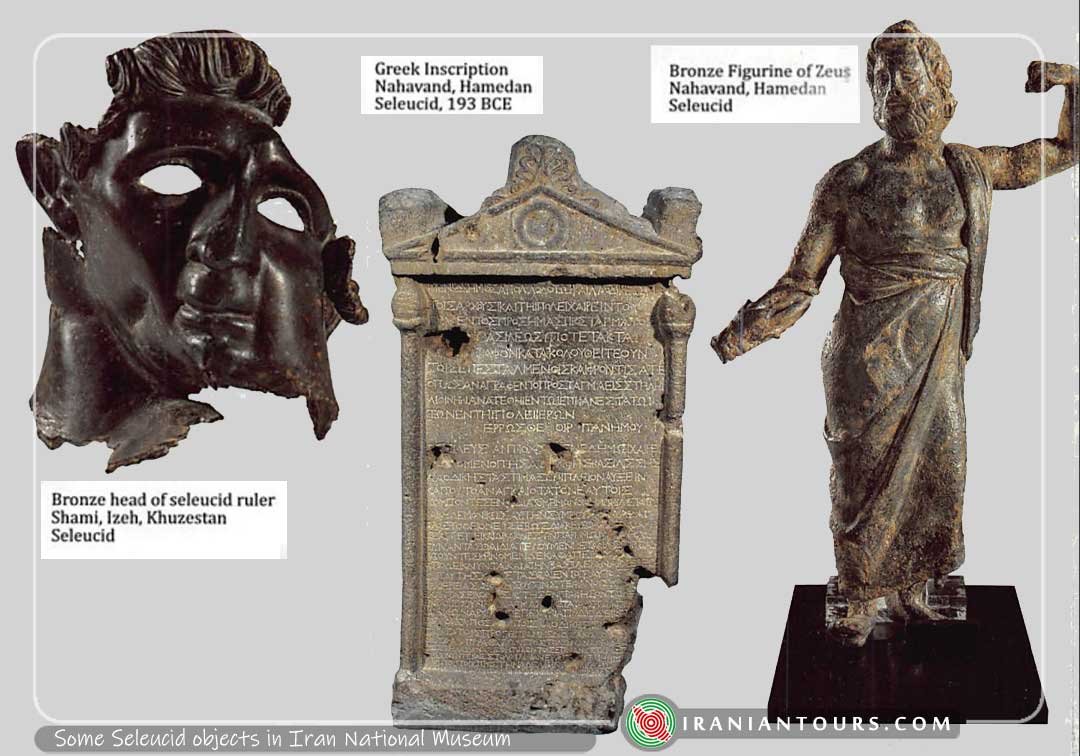


Timeline
The Seleucid Empire was a Hellenistic state ruled by the Seleucid dynasty which existed from 312 BC to 63 BC; Seleucus I Nicator founded it following the division of the Macedonian Empire vastly expanded by Alexander the Great. Seleucus received Babylonia (321 BC) and from there expanded his dominions to include much of Alexander’s near-eastern territories. At the height of its power, the Empire included central Anatolia, Persia, the Levant, Mesopotamia, and what is now Kuwait, Afghanistan, and parts of Pakistan and Turkmenistan.
The Seleucid Empire became a major centre of Hellenistic culture – it maintained the preeminence of Greek customs where a Greek political elite dominated, mostly in the urban areas. The Greek population of the cities who formed the dominant elite were reinforced by immigration from Greece. Seleucid attempts to defeat their old enemy Ptolemaic Egypt were frustrated by Roman demands. Having come into conflict in the east (305 BC) with the Maurya Empire, Seleucus I entered into an agreement with its leader, Chandragupta, whereby he ceded vast territory west of the Indus, including the Hindu Kush, modern-day Afghanistan, and the Balochistan province of Pakistan and offered his daughter in marriage to the Maurya Emperor to formalize the alliance.
Antiochus III the Great attempted to project Seleucid power and authority into Hellenistic Greece, but his attempts were thwarted by the Roman Republic and by Greek allies such as the Kingdom of Pergamon, culminating in a Seleucid defeat at the 190 BC Battle of Magnesia. In the subsequent Treaty of Apamea in 188 BC, the Seleucids were compelled to pay costly war reparations and relinquished claims to territories west of the Taurus Mountains.
The Parthians under Mithridates I of Parthia conquered much of the remaining eastern part of the Seleucid Empire in the mid-2nd century BC, while the independent Greco-Bactrian Kingdom continued to flourish in the northeast. However, the Seleucid kings continued to rule a rump state from Syria until the invasion by Armenian king Tigranes the Great in 83 BC and their ultimate overthrow by the Roman general Pompey in 63 BC.
